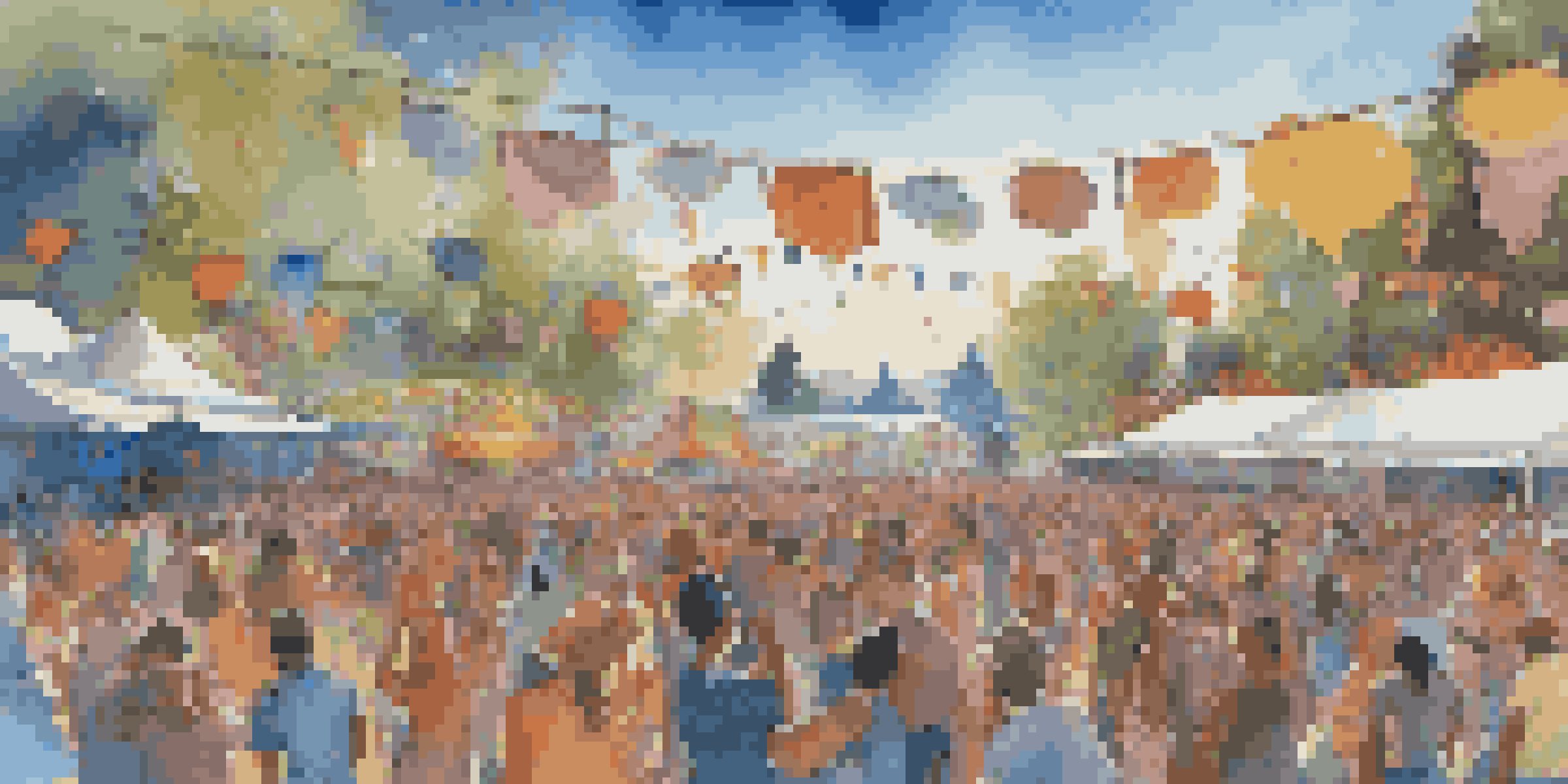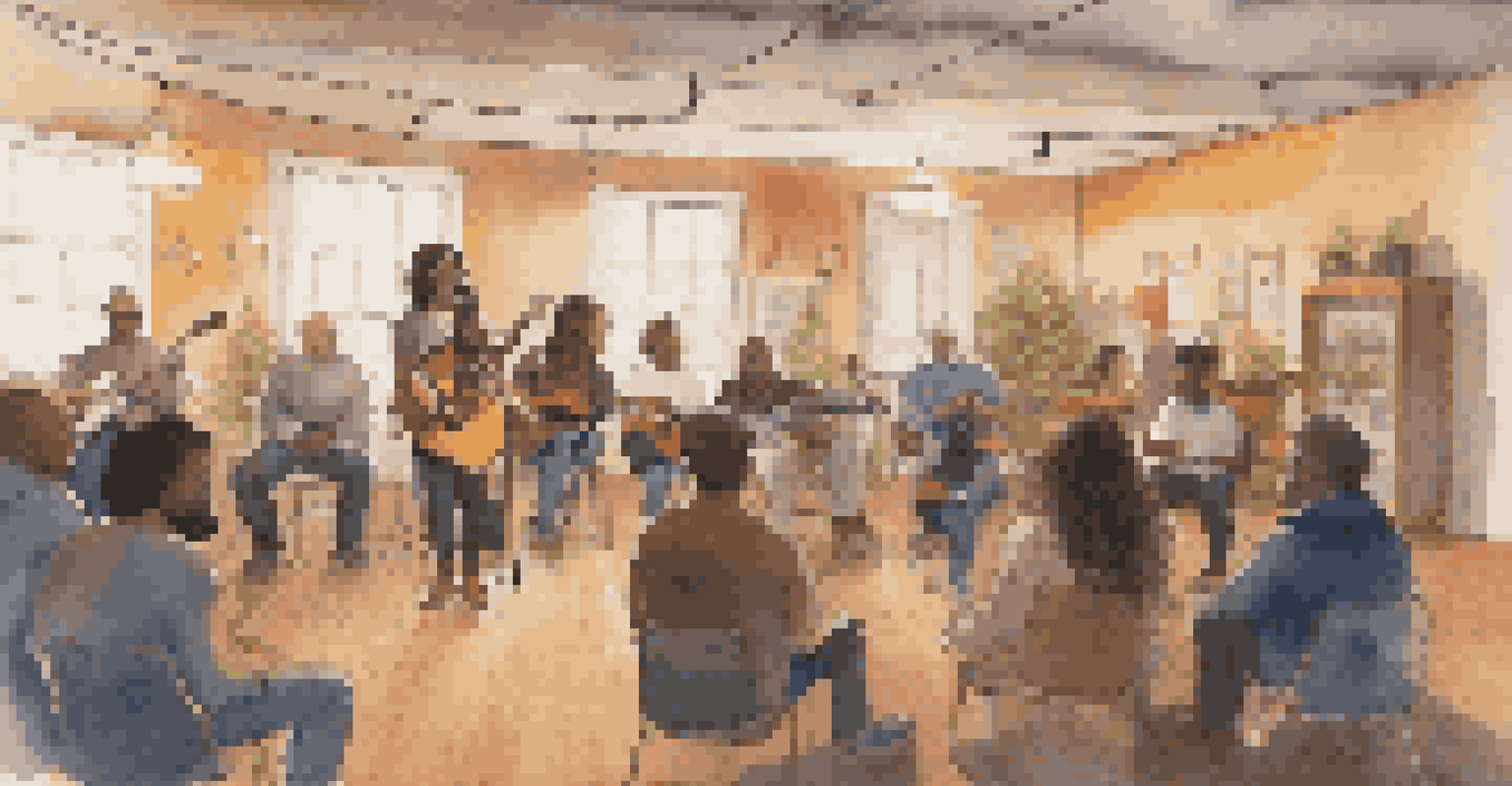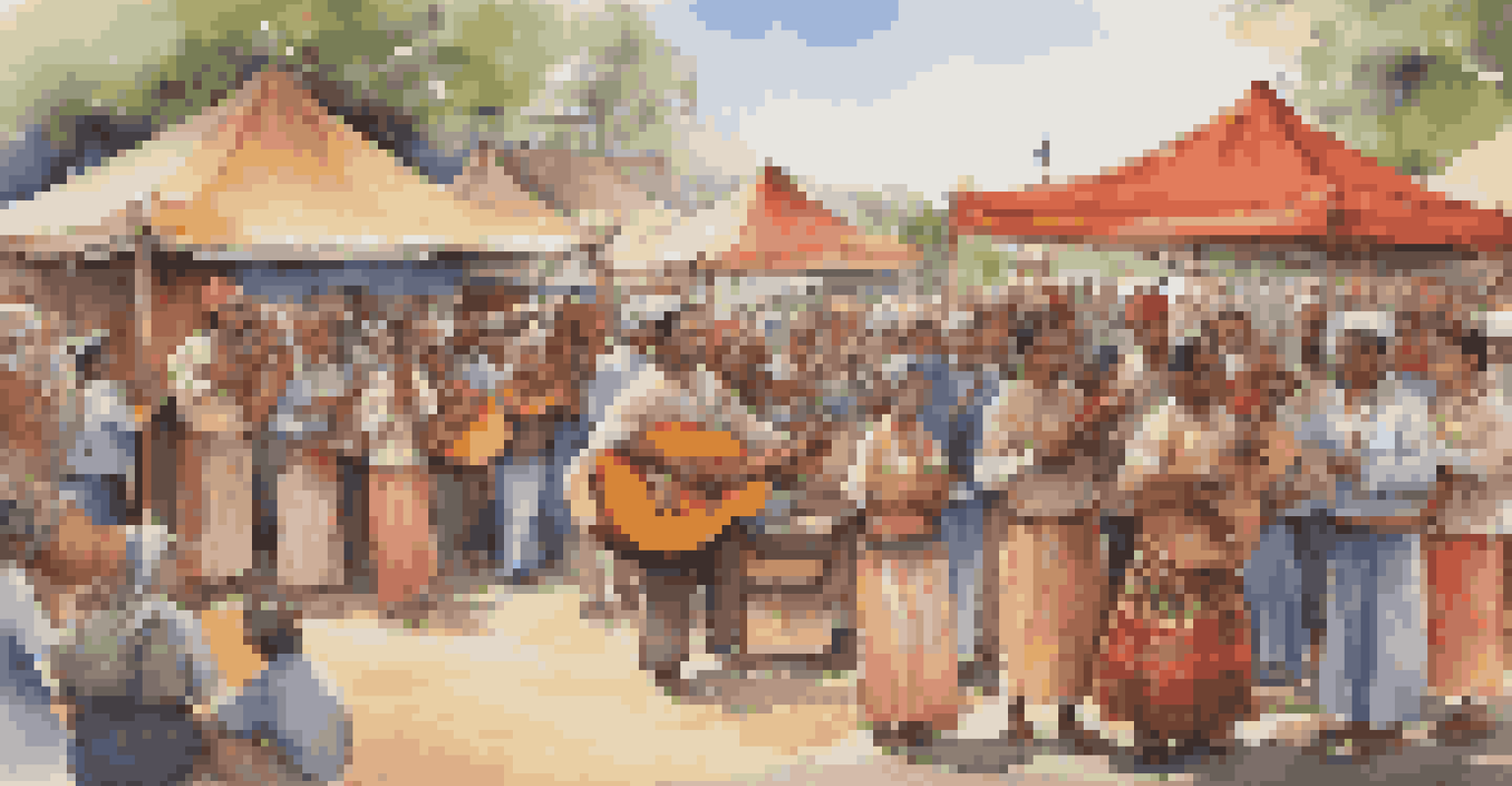How Music Can Enhance Community Dialogue and Discussion

The Power of Shared Musical Experiences
Music has a unique ability to bring people together, creating shared experiences that foster connection. When communities gather for concerts or music festivals, they not only enjoy the performance but also engage with one another. This collective enjoyment can spark conversations, breaking down barriers and encouraging dialogue among diverse groups.
Music is the shorthand of emotion.
Think of a local music event where friends and strangers alike come together to enjoy live performances. The atmosphere is charged with energy, and as people share their thoughts on the music, friendships blossom. Such environments cultivate an openness to discussing broader community issues, as the shared experience creates a sense of belonging.
Moreover, music often reflects the culture and values of a community, providing a common ground for discussion. By discussing local artists or genres, residents can explore their identities and experiences, leading to richer conversations about what their community represents.
Music as a Tool for Storytelling
Songs have long served as a medium for storytelling, conveying personal and communal narratives. When people share their musical tastes or favorite songs, they often reveal parts of their identity and experiences. This sharing of stories can enhance understanding and empathy among community members.

For instance, a community might host an open mic night where individuals can perform original songs or share personal stories through music. Such events encourage participants to express themselves, allowing others to listen and engage with their narratives. In doing so, attendees learn about different perspectives and life experiences that they may not have encountered otherwise.
Music Fosters Community Connections
Shared musical experiences create an environment where individuals can engage in meaningful dialogue and build relationships.
Ultimately, storytelling through music creates a platform for dialogue that transcends typical conversations. It invites deeper discussions about shared experiences, challenges, and triumphs, fostering a sense of unity and connection.
Creating Safe Spaces for Dialogue
Music can help establish safe spaces where community members feel comfortable expressing their thoughts and emotions. When people gather around music, they often feel more relaxed and open to discussing sensitive topics. This can be especially important in communities facing social or political challenges.
Where words fail, music speaks.
Consider a community forum that incorporates music as a backdrop, creating an inviting atmosphere. Participants may find it easier to voice their opinions or concerns when accompanied by soothing melodies or uplifting rhythms. The music sets the tone, encouraging open dialogue and reducing tension.
In these safe spaces, music acts as a catalyst for discussion, allowing individuals to explore complex issues while feeling supported. This not only strengthens community bonds but also empowers residents to share their voices in a constructive manner.
Collaborative Music Projects and Community Building
Collaborative music projects can serve as a powerful means of community building and dialogue. When individuals come together to create music, they learn to work as a team, bridging differences and fostering collaboration. These projects often lead to discussions about the community's needs and aspirations.
For example, a community choir might unite people from various backgrounds to sing together, promoting teamwork and shared goals. Through rehearsals and performances, members not only create beautiful music but also engage in conversations about their experiences and perspectives. This collaboration fosters a sense of ownership in the community's cultural fabric.
Storytelling Enhances Understanding
Through music, individuals share personal narratives that deepen empathy and foster a sense of unity within the community.
As members share their thoughts and ideas during the creation process, they build relationships and enhance understanding. This sense of unity can lead to further initiatives aimed at addressing community challenges, proving that music can be a springboard for meaningful dialogue.
Music’s Role in Cultural Exchange
Music serves as a vehicle for cultural exchange, allowing communities to learn from one another. By introducing different musical styles and traditions, individuals can gain insights into diverse cultures and histories. This exchange promotes understanding and respect, essential components of effective dialogue.
Imagine a cultural festival where musicians from various backgrounds come together to showcase their art. Attendees not only enjoy the performances but also engage in conversations about the cultural significance of the music. This creates a dynamic environment where dialogue flourishes, as individuals are encouraged to ask questions and share their perspectives.
Through these interactions, communities can celebrate their differences while recognizing commonalities. This cultural exchange fosters a richer dialogue, enhancing the community's social fabric and encouraging collaboration across cultural boundaries.
Engaging Youth Through Music Initiatives
Music initiatives aimed at youth can play a significant role in enhancing community dialogue. By involving young people in music programs, communities can empower them to express their thoughts and feelings. This engagement not only fosters creativity but also encourages discussions about relevant social issues.
For instance, music education programs or youth bands can provide platforms for teenagers to share their experiences and perspectives. As they collaborate on songs or performances, they learn to articulate their thoughts while listening to others. This exchange is crucial for developing strong communication skills and promoting understanding among peers.
Collaborative Projects Build Unity
Community music initiatives encourage teamwork and open discussions, leading to a stronger cultural and social fabric.
Ultimately, by investing in music initiatives for youth, communities can cultivate future leaders who are equipped to engage in meaningful dialogue. These programs can inspire young people to advocate for change, ensuring that their voices are heard and valued.
The Lasting Impact of Music on Community Dialogue
The impact of music on community dialogue extends far beyond individual events; it can leave a lasting impression on the community as a whole. When residents engage through music, they not only strengthen their relationships but also create a culture of open communication. This can lead to a more cohesive and resilient community.
For example, communities that regularly host music events often find that these gatherings become a cornerstone of their social life. Over time, the connections made through music can lead to collaborative efforts in addressing community issues, fostering a spirit of teamwork and unity.

In essence, music has the power to transform communities by enhancing dialogue and understanding. As residents continue to engage with one another through musical experiences, they cultivate a vibrant environment where everyone feels valued and heard.